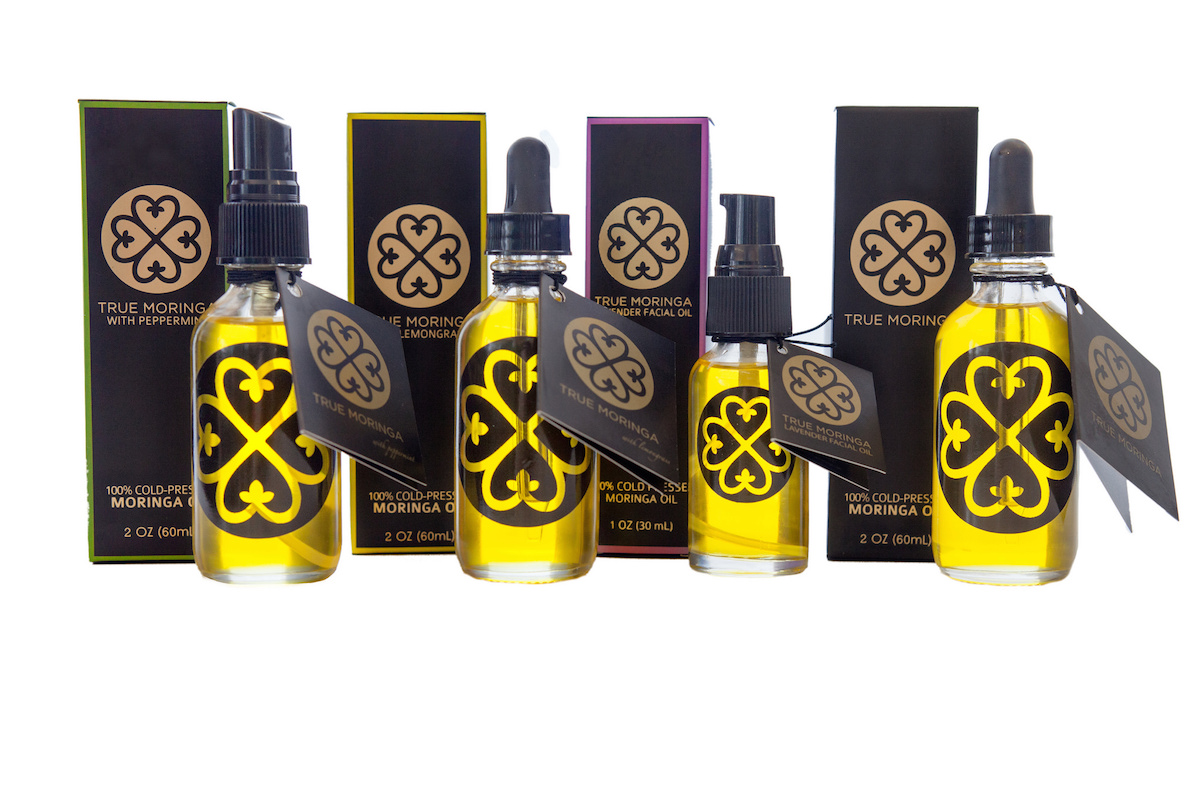Local Beauty and Health Startup Aims to Improve Economy in Ghana
For local startup MoringaConnect, it all started with a tree.
The company, founded by then-undergrads Emily Cunningham and Kwami Williams after a trip to Ghana, is tackling the lofty goals of improving agriculture, economics, and supply chains in Africa. And they’re doing so with the launch of two initial product lines—cosmetics and healthy snacks—sourced from Ghana’s native Moringa Tree.
“We were just both overwhelmed by the huge potential of agriculture in Africa and the underutilized resources,” Cunningham, a Harvard graduate, says of her trip with Williams, an MIT alumnus. “The farmers themselves actually came to us with the idea of using Moringa specifically.”
Moringa is known as “the miracle tree” in Ghana. The tree’s leaves are packed with nutrients, and the oil seeds it produces are rich in antioxidants and natural moisturizers, making it a perfect base for both beauty and food products—except that the trees weren’t being used to their full potential by Ghana’s farmers.
Williams used his background in engineering to develop a method for extracting the tree’s oils, and MoringaConnect was born. Now, the company trains and advises farmers in Ghana, purchases Moringa seeds at a fair price, and employs locals in its African processing center, all with the aim of improving living and working conditions.
MoringaConnect’s U.S. sales are currently limited to its beauty line, called True Moringa, which is available online, at Cambridge Naturals, and at a handful of retailers outside Boston. Products include hair, body, and facial oils, with the former two costing $29 and the latter $26. “We really see it as what could be the next Argan or Jojoba oil, and really bringing a valuable product to make the switch from synthetic and potentially harmful cosmetics to really effective natural products,” Cunningham says.
The company’s other branch, Minga Foods, produces a Moringa-based powder that can be steeped like a tea or added to food. The powder is currently only sold in Ghana, a nontraditional choice Cunningham says allowed the company to fine-tune its strategy while benefiting the people of Ghana. “There’s not a lot of healthy snack foods in Ghana or Africa,” Cunnigham says, adding that the company is aiming to bring “a really healthy, great-tasting natural food source” to the continent. Eventually, she says, the goal is to sell Minga Foods stateside as well.
While MoringaConnect’s products benefit consumers’ health, Cunningham says the company’s larger purpose is firmly rooted in ethical business. “The overall intent for MoringaConnect as a company is just to really prove how important first, agriculture, and second, just understanding the whole supply chain, is for creating really high quality products,” she says. “It’s a symbiotic relationship.”


